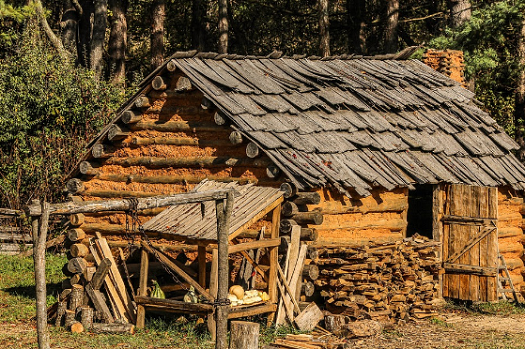This post may contain affiliate links. Please read our disclosure for more information.
Hello, groovy freedomists. We are proud to have another guest post from Fritz, our good friend who blogs over at The Retirement Manifesto. For those who may not know, Fritz is an expert on investing, wealth accumulation, and retirement. We first happened upon his fertile mind when we tuned into Radical Personal Finance one day and he was being interviewed by Joshua Sheats. If you get a chance, we highly recommend that you listen to the interview yourself. Here’s the link to the podcast. More recently, Fritz had a kick-ass post on how to become a 401(k) millionaire that was featured on J Money’s Budgets are $exy. In a word, the Fritzer rocks. And for today’s guest post, he offers some rockingly sound advice for those on the cusp of retirement. Enjoy.
Have you entered, or are close to entering, “The Red Zone” of retirement?
The 5 years prior to retirement are among the most important of your retirement planning.
I’m well into The Red Zone, and would like to share some of the best advice I’ve read on the topic, as well as steps I’m taking in my personal planning for retirement. Finally, I’ve suggested several “To Do” items under each of the steps to help you get started on the critical tasks recommended below.
5 Steps To Take Within 5 Years of Retirement
I don’t know if it’s due to demographics, or “group think”, but I’ve seen a lot of articles in the past few weeks about this topic (I’ve put links to them at the bottom of this article). Fortunately for you, I’ve reviewed them all, and have highlighted the top 5 steps you should take within 5 years of retirement:
1. Make The Numbers Real

Even if you’ve been hesitant throughout your working years to understand “your numbers”, you can no longer afford to stick your head in the sand. Bottom line: you can’t answer the question of “When Can I Retire?” without knowing how much you need to fund your lifestyle, and how much income you can count on after you leave your job. Run a few online retirement calculators and compare the results. If you’ve been thinking about buying long term care insurance, evaluate it now and include it in your retirement spending plan. Learn about social security claiming strategies, and build them into your retirement cash flow projection. Spend the time with the numbers, or book some time with a professional Certified Financial Planner. Don’t make the decision to retire until you’ve done this step.
What I’m Doing: I’m a bit of a number nerd, so I’ve built spreadsheets which project our cash flow out through Age 95 under various market scenarios. My wife and I also tracked our actual spending for 10 months to insure our estimates were realistic. For income, I’m targeting a 3% withdrawal rate (vs. the historical “rule of thumb” of 4%) from our investments due to my belief that equities will have a below average return in the coming decades.
To Do’s: Read my “When Can I Retire” series to determine when you can retire. Track your spending for a few months (use the “Spending Tracker” I built for my readers here). Put together your Net Worth statement, (use my template here) and project how much income you can expect in retirement. Test out an online retirement calculator. If you need to learn more about personal finance, check here for some online classes. If you’d rather hire a professional to do the work, click here.
2. Get Your Portfolio Ready For Withdrawals

After 30+ years of work and contributions to your savings, the time is coming when those “inflows” will become “outflows”. I’ve not yet experienced that change, but I’ve heard from others that it takes some getting used to. Make sure you’ve built a 1-2 year cash reserve before you retire to help cushion any downturns, and diversify your investments across an appropriate asset allocation to maximize your return while respecting your risk tolerance. Consider annuities if you need some predictable income to cover your base expenses. If you’ve got multiple investment accounts, consider simplifying and consolidating your holdings.
What I’m Doing: Having just sold our “primary” home, we generated a bit of cash and liquidity. We’re intentionally going to carry the cash position as our 2 year reserve into retirement, and only invest any money which is in excess of the 2 year reserve. We also analyze and adjust our asset allocation annually. Finally, I’ve written a “love letter” to my wife with instructions to have Vanguard’s Personal Advisory service take over the management of our accounts if I were to die unexpectedly.
To Do’s: Study up on Asset Allocation, and make sure you’re adjusting your portfolio to the new risk tolerance levels you’ll have in retirement. Focus on building up your cash reserve, to avoid having to sell any investments during a downturn in the market. Better to build it up gradually over the 5 years prior to retirement than to be faced with having to sell during a bear market in your first few years after work (this phenomenon, called “sequence risk”, is one of the highest risks you’ll need to manage in retirement).
3. Decide Where You’ll Live, And Pay Off The House (?)

Now is the time to decide where you’re going to live in retirement. You’ve got a few years before you need to make the move, so take the time to really think through what you want your retirement to be. Do you want to move, or stay put? Do you want a small place where you can stay 6 months, then travel the other 6 months? Or….would you rather have a big house for all of the family gatherings, and have it near your kids? Spend some extended time in the areas you’re thinking about. Rent a house for a week to get a feel for what it’s like to live there. Start watching real estate listings to get a sense of the market. If you’re going to sell your home, start sprucing it up now to avoid the last minute rush of getting it ready for market. Once you’ve figured out what you’d like to do, consider paying off your mortgage to reduce your retirement expenses. If you’re staying put and have a lot of equity in your home, learn about reverse mortgages and see if they make sense for you.
What I’m Doing: 3 years ago, my wife and I bought a cabin in the North Georgia mountains as part of our eventual downsizing strategy (the strategy is outlined here). We spent a lot of time at the cabin, and rented it out when we weren’t using it to have our renters pay the mortgage for us. We intentionally targeted a price range which would allow us to pay off the cabin after we sold our primary residence. We just sold our house in 7 days, and will be applying the liquidity from the home sale into two areas: paying off the cabin, and building our 2 years of cash reserve. I’ll continue to work, commuting to the office from a small “city apartment” during the week. The plan is coming together, and it feels good. Make sure you develop and execute your plan during your final 5 years of work.
To Do’s: Spend several weeks of this year’s vacation at a place you’re interested in potentially living during retirement. If there’s a chance you’ll be selling your house in the next 5 years, start building a list of items you need to spruce up. (Read this to see what we did to prepare the house for sale, and this to see how we got rid of all of our stuff). Then, spend a few weekends over the next year working on the projects that have the longest “shelf life” (e.g., they’ll still look good when you sell the house). Review your mortgage statement to see how much of your loan you have left to payoff, then evaluate targeting this as a goal before you retire (the “return” on your money is essentially equal to your interest rate – you’ll lose the tax deduction for the interest, but if you invested the same amount you’d owe taxes on the investment return). If you don’t have sufficient liquidity to pay off the house AND build a 2 year cash reserve, focus on the cash reserve first.
4. Catch Up

In your final years of work, you should attempt to live on your retirement budget and aggressively save the difference. Take advantage of “catch up” clauses, which allow you to fund more into your retirement accounts in your final years of work. If you have a Health Savings Account (HSA), consider saving the maximum every year before retirement to begin pre-building a hedge against retirement health care expenses.
What I’m Doing: For the past 30 years, I’ve increased my 401(k) contributions every year with my pay raise (if I got a 3% raise, I’d increase my 401(k) by 2% and “take home” a 1% increase). This has “forced” us to “live below our means”, and has allowed us to reach the point where we’re maxing out all possible retirement savings, including full utilization of the catch-up clause and HSA limits. In addition, we make regular monthly ACH transfers to after-tax investments (primarily in Vanguard mutual funds). Living below your means, and aggressively saving, is the #1 trick to achieving an early retirement. If you’ve not done it in the past, start now.
To Do’s: If you’re in The Red Zone, it’s time to stop making any excuses about low savings rates. Get aggressive now, or you’ll work until you die. A bit dramatic, perhaps, but it really is time to get serious about reducing your spending and increasing your savings. I challenge you today to increase your current retirement savings by 1% this week, then take your next raise in it’s entirety and throw it into savings. Read this article to see how you could save several thousand dollars on your tax bill by taking advantage of catch-up contributions. Stretch yourself to try to max them out (hey, living on less will be good practice for your retirement, anyway!)
5. Find Something To Run “To”

When at work, work! Keep your focus on your job while you’re still employed, but don’t ignore retirement planning. After your days are no longer consumed by work, what are you going to do? As I wrote in “Will Retirement Be Depressing?”, retirement increases the probability of depression by 40%. While some folks end up depressed, others find retirement to be the best years of life. What separates the two groups? It turns out the biggest factor is having something to “Run To” in retirement (instead of “Running From” work).
Below are the steps I suggested in the “depression” article, and they’re relevant again in this “5 years” article. To increase your probability of a great retirement, think through the bullet points and pick a few to begin working on while you’re in The Red Zone:
- A strong focus on achieving balance in your life BEFORE retirement.
- Intentionally accelerate your development of external interests in your final 3-5 years of work.
- Strive to find other areas in your life to develop, and “ramp these up” as you approach retirement.
- Develop alternative means to develop the socialization and self-esteem that work brings, and begin that development as part of your retirement planning.
- Begin populating a bucket list of items you’d like to do in retirement. Broaden it to include categories beyond travel. Stretch yourself.
What I’m Doing: I’m intentionally pursuing every one of the bullet points above. One example is writing this blog. I started it a year ago as a means of covering two of the bullet points (before I had even written the bullet points, or learned that the concepts were important elements of a successful retirement). The writing of the blog covers “accelerate external interests” and “alternative means of socialization and self-esteem”. I’m also keeping my eyes out for opportunities to get engaged in new opportunities in our new home of Blue Ridge, GA, and will develop those prior to retirement.
To Do’s: Read “Will Retirement Be Depressing?”, then start developing a bucket list. Read “What Life Is Really Like In Retirement” for an article Kiplinger’s wrote about the topic. Read The Purpose (an article I wrote when The Retirement Manifesto was only one week old), then think about what your own “Purpose Statement” should be for retirement. Intentionally seek out areas now that you can develop after retirement (relationships, organizations, hobbies, etc.). Start a blog!
Conclusion
If you’re in The Red Zone, it’s time to get serious about your retirement planning. Don’t just “let it happen” and end up depressed. Use this phase in your life as an opportunity to plan something truly great. If you follow the 5 steps outlined above, you’ll be well on your way to a Truly Great Retirement, and I’ll have moved just a bit closer to this blog’s purpose of “Helping People Achieve A Great Retirement”!
Additional Reading:
Below are some of the sources I read as preparation for this article, including a summary of their recommended steps in The Red Zone. Click on the header to read the full article:
Money:
Put real numbers on your retirement.
Book time with a career coach.
Debt: Decide whether you should be mortgage-free.
Pick your retirement home.
Simplify your finances.
About:
Increase Cash Reserves.
Estimate How Much Money You Need To Retire.
Evaluate Tax Consequences.
Diversify Your Investments.
Educate yourself.
US News:
Tighten up your budget.
Add catch-up contributions to your savings.
Meet with a financial advisor.
Fix up your house.
Pay off your vehicle and home.
Kiplinger:
Max out your accounts.
Plan for long-term care.
Create a retirement budget.
Plot your social security strategy.
Tap your home equity.
About – Retirement Planning In Your 50’s:
Run projections using retirement calculators.
Get a handle on spending.
Educate yourself.
Focus on your career.
Invest and save, don’t speculate.
Review regularly.

We’re working on the balance part right now. We know we’re going to hit all of our goals, so we’re making progress on a few new things that will come to characterize post-FI life. Will have to revisit this list periodically to ensure we stay on track.
And just think how awesome things are going to be in March when the last of your debt disappears! It’s so much easier to work on the balance part when you’re not working on dept elimination part. Can’t wait to see what unfolds for the Two-Cuppers in their post-FI life. Thanks for stopping by, Claudia. Always great hearing from you.
As the comment activity on this post starts to wind down, I’d like to leave a note of “thanks” to The Groovies and all of you wonderful readers for the engagement on my article! We can all learn a lot from each other, and I enjoy being an “adopted cousin” into the wonderful Groovy “family”!
Keep the important things, the important things!
Agreed, Fritz. What an apt description of the community we’ve all been developing. Wonderful, smart, engaged people with a lot to offer. I’ve said it before and I’ll say it again, I’ve learned more from my follow bloggers about finance and life than I ever learned in school. And this guest post is another prime example. Great advice and great comments. Life is certainly good.
More excellent advice. Especially the house thing. People get so used to having a mortgage that they think it’ll be ok to do so in retirement. I’m a firm believer that the less expenses you have, the better of you’ll be in retirement. Based on our current retirement reserves, we should be good moneywise. Now we just have to finish dumping the debt.
Not having a mortgage is such a blessing. I don’t think we could have retired if we still had a mortgage or a rent payment. How wonderful that you have the reserves in place, Laurie. That’s gotta be a good feeling.
I’m not w/in 5 years yet, but this is great info for anybody. Rather than quitting work one day and being fully retired the next, I’m starting to come up with a “glide path” approach where I can slowly easy out of the workplace and into retirement.
I’ve seen friends and loved ones struggle with the transition and I’d really like to avoid that. Hopefully easing into retirement will help me transition better and help to avoid falling into the “depressed” segment that some recent retirees slip into.
I think you both have the right idea about planning ahead to avoid depression. Developing hobbies and interests before retiring can certainly help. Personally, I haven’t been concentrating yet on new hobbies (and old ones that I’d like to pick up) but I’m working up to it. I’m still enjoying having free stretches of time with absolutely nothing to do!
Very practical list! I hear that a lot of people who are financially savvy and have done their do diligence don’t know what to do when they reach retirement.
“Intentionally accelerate your development of external interests in your final 3-5 years of work.”
I would say one must develop at least 3 core things that they like and believe in outside of work – it could be gardening, photography, volunteering at work, blogging.
That way, when a person does retire, there is life besides work.
“We’re visiting the ID/MT area this summer.”
I suspect you’ll love the area! I’d suggest you also get up to Northern MT and visit Kalispell, one of my favorite towns in the world (you can also say hi to Ms. Montana while you’re there!).
I like the concept of renting in an area for a year, if you can do that. Sounds like you have a good plan!
Mr. SSC, it’s great that you know what you will be retiring to…It will be funny if a bunch of us end up in Montana. Fritz knows I always have MT in my heart. I don’t think Miss Montana will mind.
Nice list! We’re in the red zone of our “retirement” or at least FI and have started doing some of what you mentioned. We’re hoping Mrs. SSC gets a teaching gig somewhere outside of Houston, so we can relocate, but barring that, we’ve been vacillating between ID/MT and NC/TN/VA mtn regions.
We’re visiting the ID/MT area this summer, and have spent loads of time in the east coast areas already. We’ve thought about taking longer weeks long trips to each place if we’re not relocating to a job when we move, or just rent the first year or so. If we like it, we stay and buy outright, if we don’t we move on to town #2, lol. 🙂
Having 2 kids under 6 gives me something to retire to, along with the blog. I plan to volunteer more wherever we move to. I won’t be working so I’ll be the stay at home dad, regardless if we are both in that role or not. Having something to retire to is key.
Very thoughtful strategy, and I love that so much is focused on educating yourself for your retirement life and finances. This is not a time to just wing it. Actions can have much bigger consequences when you’re looking at ending your work life. I saw someone this week who’d made a terrible decision with her 401(k) money right after she retired, and there’s just no way for her to do anything now but live with the consequences.
“This is not a time to just wing it.”
I couldn’t agree more, Emily. That was my primary purpose for starting this blog, to help me be intentional in my retirement planning!
We don’t want to end up like your friend.
That’s an awful situation for your friend, Emily. We were careful with our rollovers. But still, we were relieved when the new IRA accounts were settled and we could confirm we didn’t screw up.
Excellent summary Fritz! We have a few of these taken care of too! We did a spreadsheet that shows our anticipated cash flow out through age 90 too! That was eye-opening. We are working on getting our house ready to sell too – then we’ll downsize and have both our primary and vacation house paid off. We’re loving planning for the next 40 years too 🙂
Vicki, it sounds like we’re on very similar paths!! Selling the house is a lot of work, but the rewards of downsizing are worth the effort! I can’t tell you how GREAT it feels to have a paid off house prior to retirement!! I love that we’re all trying to figure this out together, and really (really!) enjoy the community of fellow bloggers!
+1 on the downsizing! We’re heading in that direction too. Very wise to plan out to 90, Vicki.
Haha! I love it, Gary. A blog certainly adds structure to one’s life.
Great article, Fritz! Having skipped through most of the red zone due to health issues, I agree that these are all important to- dos for a well-planned retirement. I think #5 may be the most overlooked and yet most critical part of the process. It’s something I still struggle with, although I did start a blog, so I can check that off my list! 😉
#5 (find something to run “to”) is the primary reason I started my blog. It’s enjoyable beyond description, and I’ve no doubt the “bridge” I’m building now will last well beyond my retirement date! Seems we’re like minded spirits on our journeys….thanks for the comment!
Great post, Fritz! There are a ton of articles about saving and investing, but not enough on what to do as you get closer to pulling the trigger.
I’m concerned I might not know enough about the getting ready part and actually worry a little about crossing all the “T’s”, so this is very helpful! And I definitely agree with the conservative approach… this is something you can’t easily afford to be wrong about.
— Jim
Having a primer like this one from Fritz is priceless as you get closer to D day. We’re of the same mind on a conservative approach especially because we didn’t see how we’d ever be able to go back to traditional work once we pulled the plug. As you said, Jim, it’s not something you can afford to get wrong.
Thanks for the compliment, Jim (& Mrs G!), glad you found the article helpful.
I enjoy writing about the transition we’re going through, and get tremendous satisfaction out of knowing that my writing is helping others! Thanks for stopping by!
Those blue ridge mountains in Northern Georgia are beautiful, you picked a nice spot!
I like that you touched on the depression aspect. After leaving work, I can see how losing the daily social interactions with work friends can be tough. It has helped that we are reconnecting with old friends and making new ones online and locally through blogging. I’ve also been spending more time on hobbies like blogging, playing music, and cooking 🙂
The social transition didn’t impact us too much since Mr. Groovy and I were both working at home when we retired. However, he does miss seeing his work pals from back in the days when they were all in the office. It’s good that you’re really focusing on making connections and exploring new hobbies.
Blue Ridge is, indeed, a marvelous town. There was a recent write up on the area, for those interested:
http://www.atlantatrails.com/blue-ridge-georgia/
I do think about those who experience depression, but from what I’ve read the very fact that I’m thinking about it reduces my odds of experiencing it!
A Family reunion!! Cuz hosting Cuz – love it!
Though I am not in the “Red Zone” I do think about the future and what it will mean to my retirement. With my job, I already live the semi retired life being able to choose my own hours/days and being able to take mass amounts of time off if I want to. With this in mind, I often think about where I will live when I do retire. I love your idea of ” Spend several weeks of this year’s vacation at a place you’re interested in potentially living during retirement.” This is something I actually thought about a few years back when traveling to a city I thought I wanted to live in. Once I was there I realized it wasn’t all it was cracked up to be…and I was only there a few nights! On the long drive home I thought perhaps it would be best to take a month or two and try each location on my list (4) to see what it actually felt to live there…grocery shop, go to the library, hike some trails, find a class, look at jobs to keep me busy. What a difference that would make from just choosing a city based on a grand idea or even a 2 night vacation stay.
Hey Cuz!! Cuz commenting on a post written by Cuz, hosted by Cuz. This is confusing!
I agree with your point about spending as much time as possible before you commit. You’ve got time to do it right, something not everyone has the luxury of.
Curious, what are the 4 spots on your list?
Cuz to cuz to cuz. There’s a lot of “familial” stuff going on here. We may need to make Miss M an honorary southerner too.
Although we didn’t spend massive stretches in the Charlotte area, we made 6 to 8 trips before relocating. We also compared it to Raleigh and liked Charlotte better (but oddly enough we’ll be moving to the Raleigh area since so many in our family relocated there).
Nice write up!
Very smart to go for a 3 pct withdrawl rate. That and a 2 year cash buffer are super cushions.
Can you email me this post in 2024?
Lol, ATL! I think you have to send it to yourself with an “auto delay scheduler”.
Yep, as mentioned above, I like to stay conservative with all of my assumptions. Better to have a surprise to the good, than a surprise to the bad!
We think alike Fritz. Mr. Groovy and I decided on a withdrawal rate that is under 2%. We can always ramp up the spending later on if our money continues to grow.
“Perhaps it’s time to ensure your risk tolerance can handle a market tank.”
Good point, FTF. We’re actually starting to fill our “Bucket 1” for retirement (~18 months away), selling off some of our higher priced equities, and moving the funds into liquid positions to cover our first 3 years of retirement living expenses. Best to be cautious, a bear in early retirement can be deadly.
Good points. We made sure to have enough cash to cover a few years of expenses when combined with Mr. Groovy’s mini-pension.
I worry the influx of these articles recently means we are at the top of the market. Like in 1999 when everyone seemed to be quiting their job to be daytraders. Perhaps it’s time to ensure your risk tolerance can handle a market tank even if your not retiring early. Don’t sell out now as irrational Exuberance can last for years, but maybe it’s time to take balcony moments for all of us not just those in the red zone.
I really like that you’re planning for a cash flow through age 95. It’s tough because no one knows how much money they’ll need, especially when they retire at a young age. Nothing is guaranteed, but it’s definitely wise to plan your money as if you’ll live forever.
Mr. Picky Pincher and I plan to pay off our house before retirement. I know a lot of people keep their mortgage during retirement, but we want as few expenses as possible, just in case the market goes south or who knows what.
Mrs. PP, We’ve always taken the “conservative” approach in our retirement cash flowing planning (e.g., we’ll live forever, inflation will be high, and equity returns will be below average). Best to have “upside”, and plan for the “downside”, at least in our view! That’s why it’s “Personal” finance, each of us can decide what works for us!
Ah, Fritz, good to see someone else explicitly planning to live forever! Personally, I’m hoping to have sufficient returns to support my Dyson Sphere Project, but absent that, it will at least be nice to know I’m ok to grow older than expected and not be a burden on great-great-great-grandchildren!
So true. As long as you avoid tobacco, exercise regularly, and limit your consumption of sugar, the odds of you reaching 95 are good. Planning for a long retirement therefore makes a lot of sense. And it never hurts to hit retirement with a paid off mortgage. When the economy tanks, paying your property taxes will be a hell of lot easier when you don’t have mortgage payments as well.
“In a word, the Fritzer rocks.”
Groovy compliment! Thanks for making my day! A true honor to get the opportunity to guest post on your site! Thanks for sharing these important retirement planning steps!
Compliment is well deserved, my friend. We love your keen insights and we are only too happy to share them with our readers.